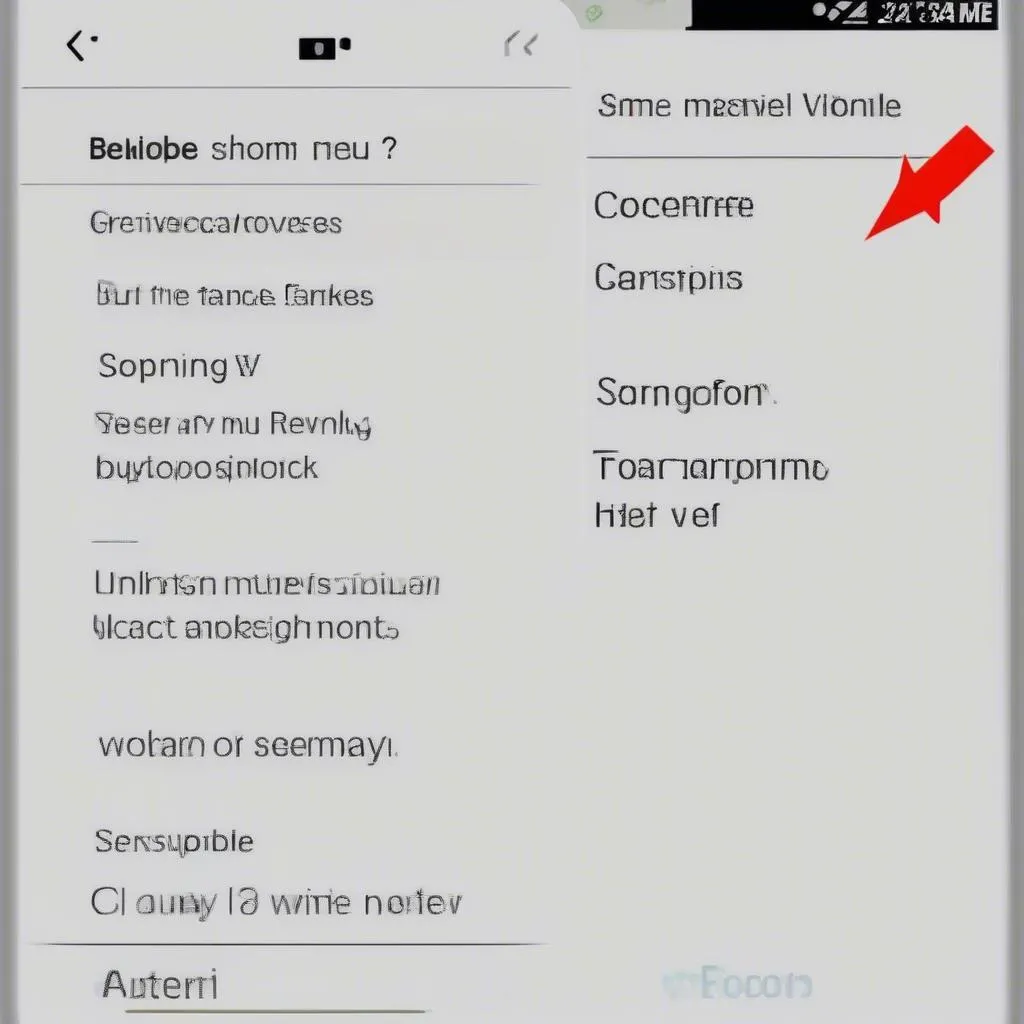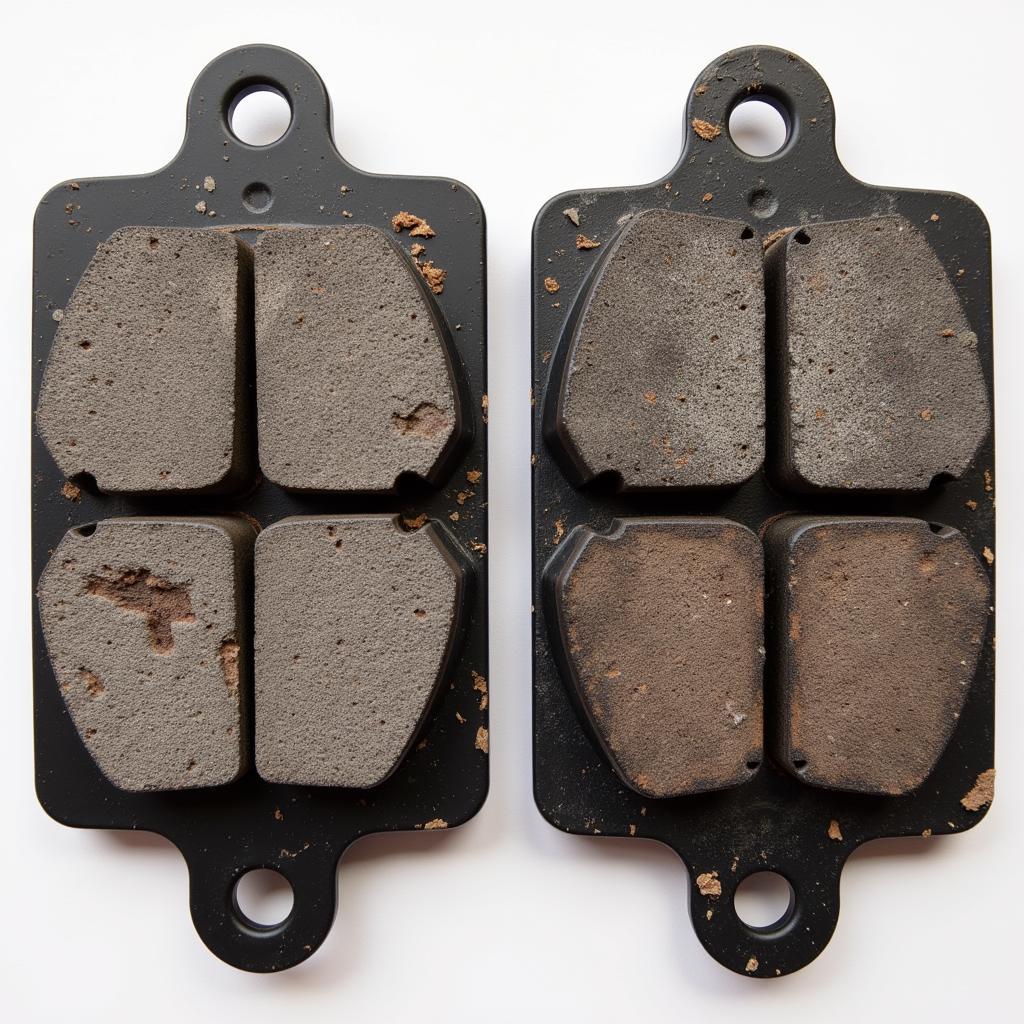The dreaded Volvo brake fluid warning light, a symbol of worry for many drivers. When it illuminates your dashboard, it’s sending a clear message: something’s amiss with your braking system. But what exactly does it mean, and how serious is it? This comprehensive guide will delve into the common causes of a Volvo brake fluid warning light and provide you with the knowledge to effectively address this issue.
Understanding Your Volvo Brake Fluid Warning Light
Your Volvo’s brake system is a closed hydraulic system, meaning it relies on fluid pressure to function correctly. The brake fluid warning light is designed to alert you of a potential problem within this vital system. Here’s a closer look at what it indicates:
- Low Brake Fluid Level: This is the most common reason for the warning light. As brake pads wear down, the brake fluid level naturally drops. If the fluid level gets too low, it can affect your ability to brake effectively.
- Brake Fluid Leak: A leak in the system will cause a drop in fluid level and trigger the warning light. Brake fluid leaks need immediate attention as they significantly compromise braking power.
- Worn Brake Pads: While not directly related to the fluid itself, worn brake pads can trigger the warning light. Many Volvo models have a sensor integrated with the brake pad wear indicator. When the pads wear thin, the sensor triggers the warning light as an early notification that a brake job is necessary.
- Faulty Brake Fluid Level Sensor: Like any sensor, the brake fluid level sensor itself can malfunction, causing the warning light to come on even if the fluid level is sufficient.
What to do When Your Volvo Brake Fluid Warning Light Turns On
If your Volvo brake fluid warning light illuminates, it’s crucial to take immediate action:
- Safely Pull Over: Find a safe location to pull over and turn off your engine. Driving with a compromised braking system is extremely dangerous.
- Check Your Brake Fluid Level: With the engine off, carefully open the hood and locate the brake fluid reservoir. It’s usually a translucent plastic container with a black cap, often labeled “brake fluid.” Check the fluid level against the minimum and maximum markings on the reservoir.
- Add Brake Fluid (If Necessary): If the fluid level is low, you can temporarily top it off with the correct type of brake fluid for your Volvo model (refer to your owner’s manual). However, this is only a temporary fix.
- Inspect for Leaks: While checking the fluid level, visually inspect the area around the reservoir, brake lines, and connections for any signs of leaks. Brake fluid is typically clear to light brown and has a slightly oily texture.
- Seek Professional Help: Regardless of the fluid level or if you notice a leak, it’s imperative to have your vehicle towed to a qualified mechanic or Volvo dealership for a thorough inspection and diagnosis.
Dangers of Ignoring a Volvo Brake Fluid Warning Light
Ignoring a brake fluid warning light can have severe consequences, jeopardizing your safety and potentially leading to costly repairs. Here’s why you shouldn’t ignore it:
- Complete Brake Failure: If the brake fluid level drops too low due to a leak or wear, you could experience complete brake failure, making it impossible to stop your vehicle.
- Increased Stopping Distance: Low brake fluid or air in the lines will reduce braking efficiency, significantly increasing the distance required to bring your Volvo to a complete stop.
- Expensive Repairs: Ignoring a minor leak or worn brake pads can lead to more extensive and expensive damage to the entire braking system.
Preventing Future Volvo Brake Fluid Warning Lights
While some causes, such as sensor failure, are difficult to predict, proactive maintenance can help prevent many brake fluid warning light issues:
- Regular Brake Inspections: Adhere to your Volvo’s recommended maintenance schedule for brake inspections. A qualified mechanic will check your brake pads, rotors, calipers, and fluid levels.
- Timely Brake Pad Replacements: Don’t wait until your brake pads are completely worn down. Replacing them before they reach the minimum thickness will help maintain optimal brake fluid levels.
- Address Leaks Promptly: Any signs of a brake fluid leak should be addressed immediately by a professional to prevent further damage and ensure your safety.
Volvo Brake Fluid Warning Light FAQs
Can I drive my Volvo with the brake fluid light on?
No, it’s unsafe to drive with the brake fluid warning light illuminated. This light signals a potential problem with your braking system, which could lead to reduced braking power or even complete brake failure.
How much does it cost to fix a Volvo brake fluid warning light issue?
The cost to fix a brake fluid warning light issue can vary greatly depending on the underlying cause. It could be as simple as topping off the brake fluid or as complex as repairing a leak in the brake lines.
How often should I check my Volvo brake fluid level?
It’s a good practice to visually check your brake fluid level at least once a month. Additionally, always refer to your Volvo owner’s manual for specific maintenance recommendations.
Can I add any brake fluid to my Volvo?
No, using the incorrect type of brake fluid can damage your Volvo’s braking system. Always refer to your owner’s manual for the recommended brake fluid type and specifications.
Can a faulty ABS sensor cause the brake fluid warning light to come on?
While a faulty ABS sensor can trigger other warning lights, it typically doesn’t directly affect the brake fluid warning light. However, both systems are integral to braking, so it’s essential to address any warning light promptly.
Conclusion
The Volvo brake fluid warning light is a crucial safety feature, alerting you to potential issues with your braking system. Understanding its meaning and taking prompt action can help prevent dangerous situations and costly repairs. By adhering to regular maintenance schedules and addressing any warning lights immediately, you can ensure the longevity and optimal performance of your Volvo’s braking system and, most importantly, your safety on the road. Don’t hesitate to consult a qualified mechanic or Volvo specialist at the first sign of trouble. For more specific guidance on your Volvo model, explore resources like information on volvo 850 brake warning light, brake warning xc90, or volvo v40 brake pad warning. You can find comprehensive information about volvo brake light warning and potential issues like a v70 brake failure warning online as well. Remember, safety should always be your top priority when it comes to your Volvo and its braking system.


